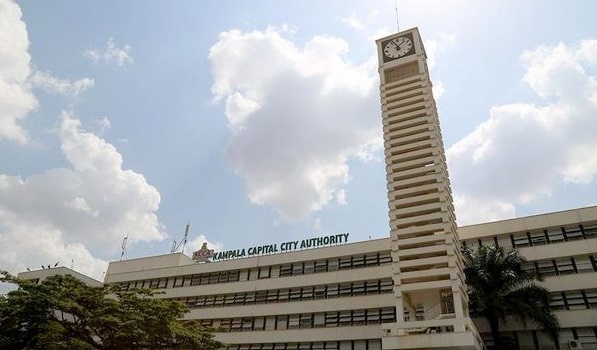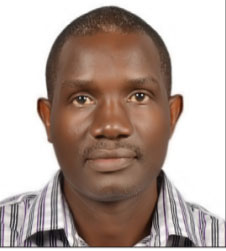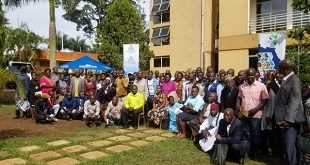
The sight of their big-size job-seeking envelopes shouldn’t be a laughing matter in the corridors of City Hall
COMMENT | JOSEPH WERE | The process of hiring replacements for the dismissed KCCA officials appears to be on and lists purporting to be of aspirants who have applied to fill the vacancies have circulated. As expected, the lists include names of people who have been at the helm of some of Uganda’s top institutions and corporations. This is a message for those in charge of this process regarding such persons.
First, anyone who is above 50 years old must never apply for a job. Those who do must never be hired. Applying for an advertised job after that age signifies the applicant’s under achievement. At that age, an achiever must be head-hunted for a job. Their expertise must be well-known. They must not approach. They must be approached. Then they can offer to “help.” They are not job hunters. They are ‘passive candidates.’
Such head-hunting also implies that the recruiter has researched available talent and decided that the one who is approached is the right fit for the job requirements. A CEO cannot go through the same so-called hiring process as a clerk. I suspect this is what leaders like President Yoweri Museveni must mean whenever they say they can only offer themselves if the “people ask them to.”
An achiever who is above 50 years old cannot apply for a job based on a job description and key performance indicators. The explanation for this is simple: When high achievers accept a job offer, they often demand to write their own job description and key performance areas. In other words, they come into a job with their personal vision of the task at hand. This means that leaders must be in a position to pull down any plaques bearing the vision, mission and purpose of any organisation and write a new one.
Above 50 years old, an achiever must be a leader. Right from the start, they must first have their own vision of any organisation they intend to head. Secondly, they must convincingly articulate that vision to others and point them in that direction. Thirdly, they must have a plan on how to mobilise resources to achieve that vision. The appointing authority cannot tell them what to do. It should be the inverse. They must tell the appointing authority what they intend to do based on their interpretation of the needs of the organisation as articulated by the recruiter.
For the job at KCCA, it is clear that the acting director, Frank Rusa Nyakaana, is a foot ahead of the rest. The previous ED, Dorothy Kisaka, came in the same way; as an emergency hire, and was confirmed by a rubberstamp public service interview process. Rusa has also previously worked closely with President Yoweri Museveni who has the final say on this appointment.
However, Rusa is an unknown entity in the Uganda public service world. His skills are untested and, critically, his character can only be guessed at. Yet, this is a job where character, dependability, resourcefulness, and sound judgment are critical. Imagine what it would be like if KCCA recruiters were able to convince people like Prof. Juma Waswa Balunywa, formerly of MUBS, Olive Birungi Lumonya of UCAA, or Dr Ian Clarke, of former IHK, to take this job. The right hire here is not a person with wealth. It is a person with character. It is a person who can craft a long-term vision for Kampala.
Note that the biggest road project in Kampala, the Northern Bypass, has become inadequate in under two years since VP Jessica Alupo commissioned it in January 2022. Clearly it cannot serve for the next ten years. This short-term mentality in public planning needs to end.
It is notable that Kampala is today where London was in the 1850s in terms of population. At the time, London had between one to two million people. Same as Kampala today. London had same problems as Kampala today: Corruption, poor road and railway infrastructure, flowing garbage and sewage, poverty, poor housing, no street lighting and more.
Yet it was at this time that most of modern London was planned and designed. New commercial and residential areas, famous sites (including Buckingham Palace and Big Ben), bridges, docks, tunnels, railways (including the London Underground), roads, street lights, a modern sewer system and many more, were built.
It is notable that the political leadership of the City of London when all the major projects listed here were accomplished comprised men and women whose expertise and character were well-known in all of the land and beyond. This practice obtains to date.
To manage the City of London, the only academic paper required is a high school certificate or its equivalent. The other requirements focus on a record of leadership, selflessness, and character. Thorough knowledge of the organisational functions, principles, and practices of public management are a given. These include; finance, administration, accounting, budgeting, legal knowledge, ability to develop new systems and working well with others.
The current holder of the job is 55-year old Cornelius Thomas who was an accomplished leader before. He was awarded the honour of Commander of the Most Excellent Order of the British Empire (CBE) for leading award-winning public services. He created innovative programmes, built things, created jobs, and attracted investment.
In the case of KCCA, the right candidate for the ED job cannot be someone who has the best plan for relocating the Kiteezi Landfill, cleaning streets or planting flower beds. These are basic managerial tasks that can be accomplished by even low tier bureaucrats.
Based on current criteria, despite her under-achievement, it is unlikely any of the people scrambling to unseat her could beat the dismissed Kisaka to the job if they had competed with her.
According the advertisement for the position, the job requires someone with a first degree, a Masters, and 15 years in public service jobs. Many Ugandans have these academic qualifications. It’s unlikely, however, that anyone on the list of current applicants for the position of ED has more academic qualifications than Kisaka who is a lawyer with two masters’ degrees.
Kisaka’s biggest challenge was that she lacked leadership pedigree and everything was falling apart around her. Before becoming ED, she was a Senior Presidential Advisor attached to the Office of the Prime Minister. Before that she was a practicing advocate, head of a leadership school, and commissioner at the Electoral Commission of Uganda. She appears to be someone who signs the attendance list and moves on without marked achievement. That’s not the ED KCCA wants. It wants a leader with a history of clear leadership accomplishments.
*****
 Joseph Were is Managing Editor at The Independent
Joseph Were is Managing Editor at The Independent
 The Independent Uganda: You get the Truth we Pay the Price
The Independent Uganda: You get the Truth we Pay the Price



